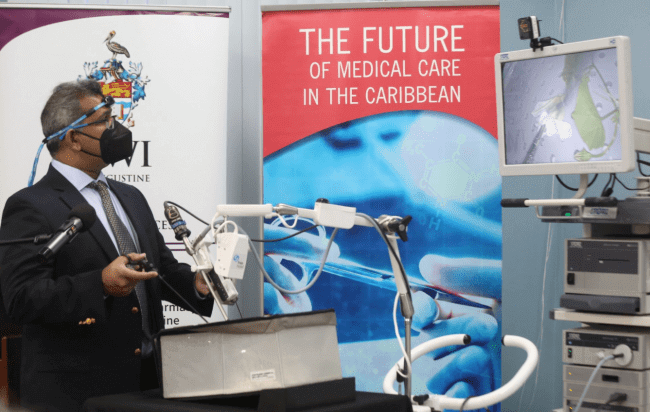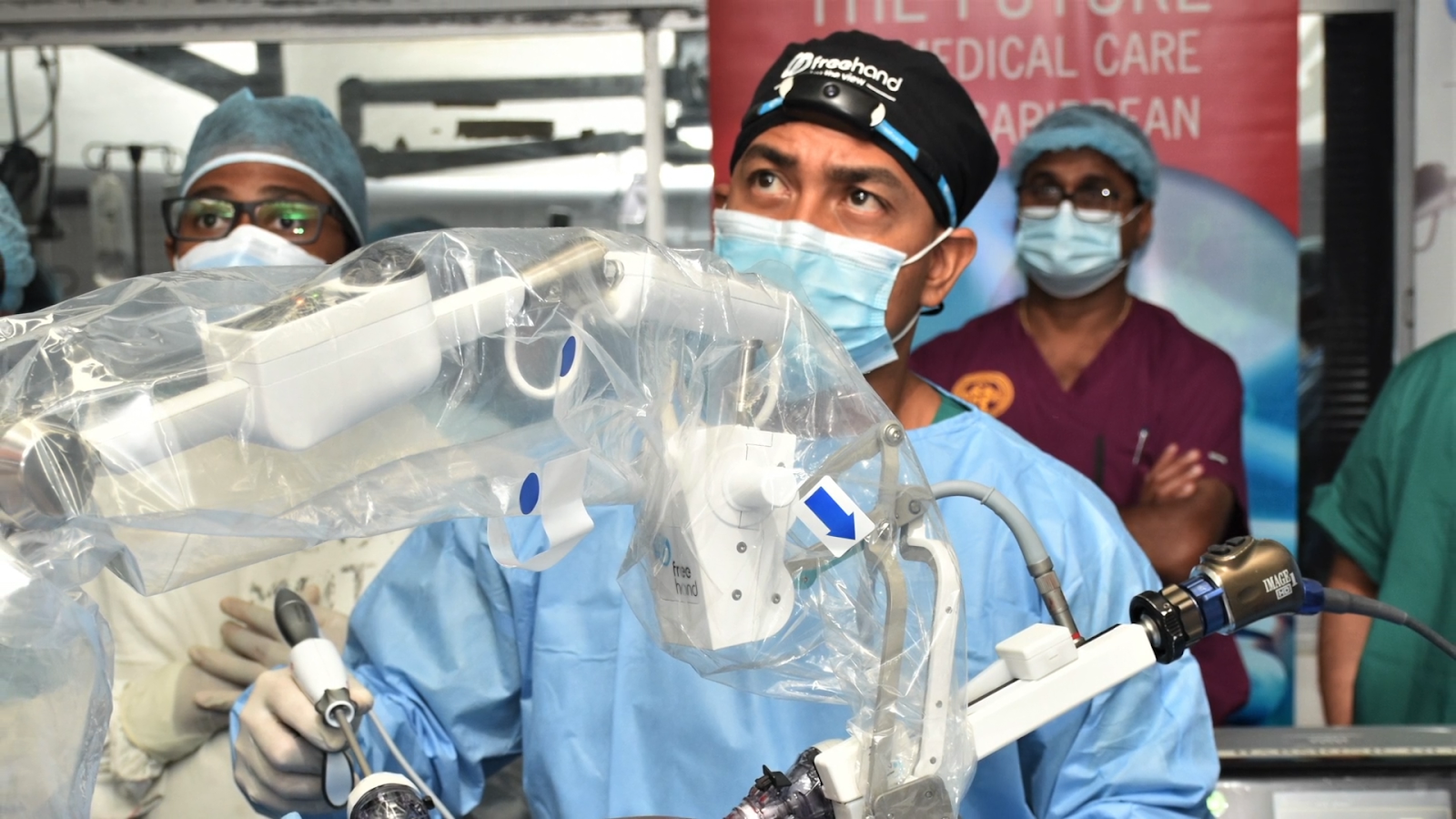
World’s First Remote Training of Surgical Robotics Concludes with a Series of Robotic-Assisted Surgeries

The remote training program, developed in collaboration with the University of the West Indies (UWI), the Port-of-Spain General Hospital (POSGH) and AA Laquis Ltd, is ideal in times of social distancing and travel restrictions and enables the company to extend the benefits of robotic assisted surgery to developing markets where the technology can be of great benefit.
Robotic-assisted surgery offers multiple advantages. Patients whose surgery is robot-assisted generally experience less pain, bleeding and scarring, resulting in shorter recovery times. Hospitals benefit from improved HR efficiency and surgeons enjoy a rock steady view under their precise control.
Surgical leaders in the Caribbean recognized a need to encourage the introduction of advanced surgical techniques in the region and engaged stakeholders to stimulate this development. Through a collaborative effort robot-assisted minimally invasive surgery was successfully introduced to the Caribbean.
Freehand collaborative robots, or ‘cobots’, are robots designed to respond to human instructions or actions. They replace a medical professional in the operating theatre who would otherwise hold the camera providing visualisation to the surgeon during surgery. They provide a rock-steady image under the direct control of the surgeon, using a combination of head movement and foot control.
“By giving us complete control of our vision we actually remove that potential for human error. It gives you a reliable and steady vision because this is now held by a robot that obeys your every move,” UWI Professor Shamir Cawich said at a recent press conference.
In a peer-reviewed case report, Prof Cawich emphasised the cost-effectiveness and ease of use of the COBOT, the advantages of a steady image under direct surgeon control and how it improves staff safety while mitigating surgical staff shortage by removing a member of staff from the operating room. You can view the full report here.
The ‘Trinidad 6’, a team of six doctors at the POSGH, studied from offline materials before attending a live online training broadcast with a multi-camera set up. By the end of the training session, the doctors had successfully achieved competence with the new robotic system and were keen to put it to practical use.
“We did a total of four operations from as simple as just a regular elective gallbladder removal to complex operations like removing stones from the bile ducts” Professor Cawich said.
“I’m happy to tell you all of these patients are fantastic, they’re all well and their recovery was immaculate.”

Dr Yardesh Singh demonstrates the use of the ‘Panorama’ cobot at the Port of Spain General Hospital. Credit: Shirley Bahadur
The ‘Trinidad 6’ have integrated the technology with their practice and Freehand is moving on to train others using the method. A second surgical team in Jamaica is now being trained to use the FreeHand system.
Freehand CEO Jeremy Russell commented, “We are delighted to have reached this point in our collaboration with the University of the West Indies, AALaquis, IMS and DRUK. The development of the remote training methodologies leading to successful surgical cases creates a new way of introducing medical technologies not just to Trinidad and Tobago, but in many countries throughout the world. We are looking forward to supporting the team as FreeHand technology is introduced throughout the Caribbean.”
References
Peer Reviewed Case Report: https://www.cureus.com/articles/72953-robot-assisted-minimally-invasive…
The Guardian Article: https://www.guardian.co.tt/news/first-robotassisted-surgeries-in-the-ca…;
Training Video: https://vimeo.com/626341578/f555690ca1